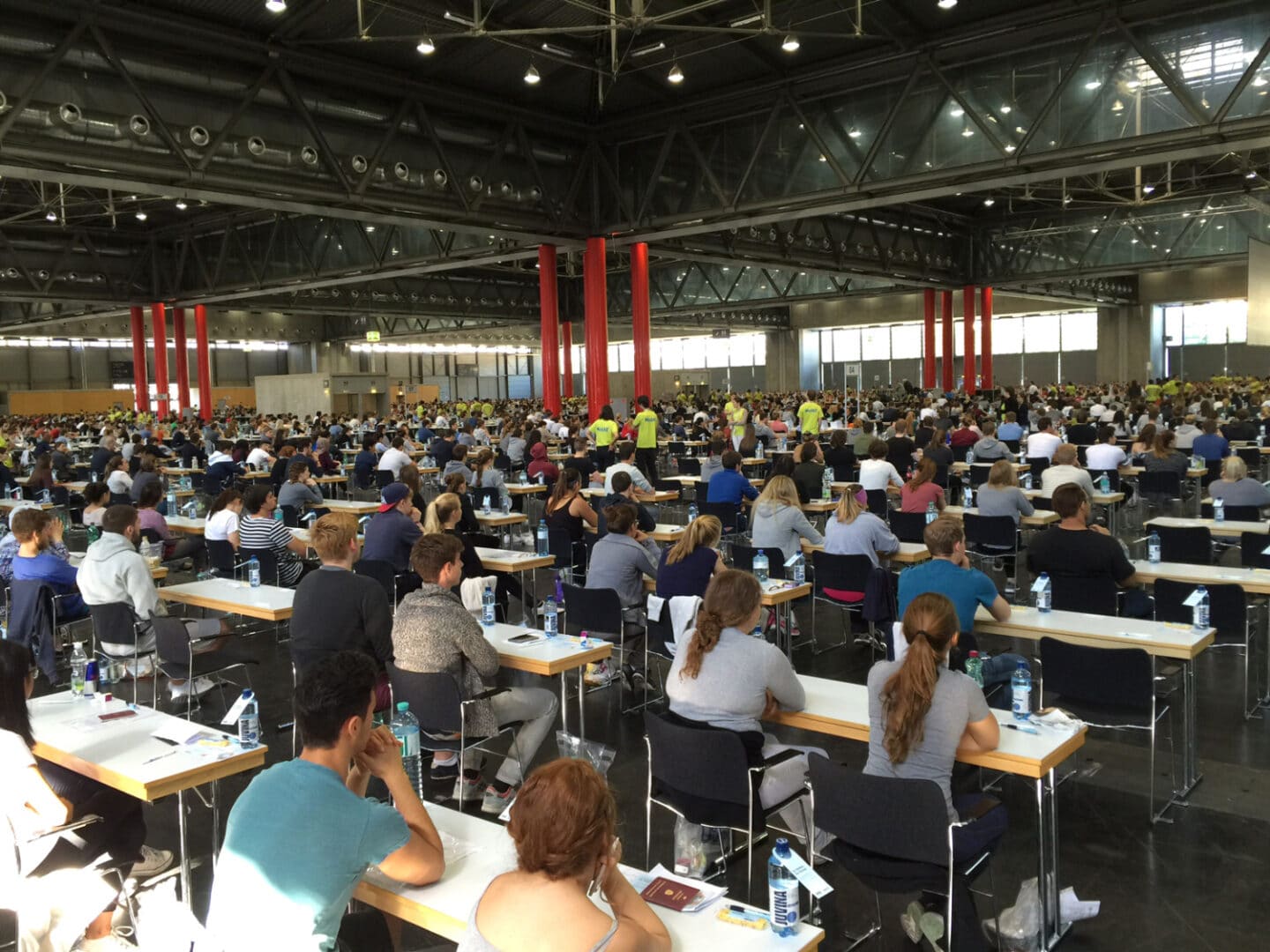
📖 Table of contents
The professor in the lecture says: "Exam relevant!", and in the last row someone's cereal bowl falls out of their hand, or: "What the lecturer tells you in 2 hours in the lecture, I can easily work out at home in half the time".
Jokes and thoughts of this kind abound, but what is really true about them and how important is it to actually go to lectures? Of course, this blog represents only my personal opinion as a Medical student abroadbut I think that this opinion can also be generalised.
Basically, it depends on whether the lectures are compulsory or "voluntary". If the lectures are compulsory, you don't really have a choice. Some professors and lecturers check attendance, others are not really interested. However, if the lectures are voluntary, many students immediately start to think and weigh the pros against the cons. Should I? Should I not?
I'll list a few points for and against here, in the hope, that it will make it easier for you to get through medical school.
Why you should attend your lecture?
Lectures, not only those of a medical degree, have some advantages. You really deal with the material that is discussed and don't put it off until you get home, where it is usually not done or postponed until the mountain of university material has become so large that you no longer have an overview of it. If you go to lectures regularly, you will certainly have fewer gaps in your knowledge. On top of that, you're always up to date with the university material and know what it's all about. Whether you actually get anything out of the lectures, however, depends very much on what type of learner you are. Are you more of a visual learner or do you absorb more auditory information? Of course, you can also take notes and take notes during lectures, but in doing so, you lose the time in which you can actively pay attention. You have to find out for yourself which way you learn best.
Another point in favour of the lectures is that you don't miss any important announcements by the lecturers or any important and exciting discussions or stories. However, I also have to say that because medical students are now so well networked among themselves, all important information is shared and you usually always get it, whether first or second/third hand. Somehow the information always finds its way to you.
Now for what everyone wants to hear...
The reasons for not going to the lectures.
Many lectures are quite nice to listen to, the students let themselves be bombarded by the material and go home afterwards without any real added value, but appeased and with a clear conscience. Unfortunately, many lecturers today still don't know how to give a good lecture, fill their PowerPoint slides with continuous text and then torture you for two hours with PowerPoint karaoke. You can avoid such lectures with a clear conscience, but you have to learn the material in some other way. If you realise that the lectures have no added value for you, don't force yourself to go just to have been there and feel better, you're just wasting time and not really getting any benefit out of it. The same applies if the lecturer is an absolute motivation killer. If you sit in the lecture for two hours and fall asleep five times because the monotone voice coupled with the presentation has a sedating effect, then use the time differently.
One of the biggest reasons why most lectures are not attended is that the alternatives to lectures are simply far too good. YouTube now offers an absurd amount of high-quality videos on medical topics that are simply better and also shorter than most lectures. Here you can easily pause, rewind, increase the speed, take notes on the side, look up things you don't understand directly, and so on and so forth....
"NinjaNerd" is only one of the YouTube channels sent by God, but in my opinion one of the best for us medical students. But you'll see for yourself soon enough what's good for you and what's not.
At many Medical universities throughout Europe it is now standard, thanks to Corona, that all lectures are held online. Of course, this is a huge game changer and puts some of the points I've mentioned so far into perspective. If the lectures are online, you can log in from home, check out whether the lecture is potentially helpful and has added value for you, and then decide whether you want to attend or not. In any case, you don't have to overcome the hurdle of leaving home and driving to the university. Many of the lectures are also uploaded and you can watch them later or just zap through them again, and if you have any questions, you can always write to the lecturers, they are nice and will answer you for sure.
As you can see, many factors play a role and you can't really say across the board, go or don't go to the lectures. In the end, every student is on their own and has to find the best option for themselves.
But, before you get super bored and unproductive going to lectures (if they even still take place at university) just to talk to the other students or play around on your smartphone, use your time differently, as long as you are productive.
Productivity is key!





